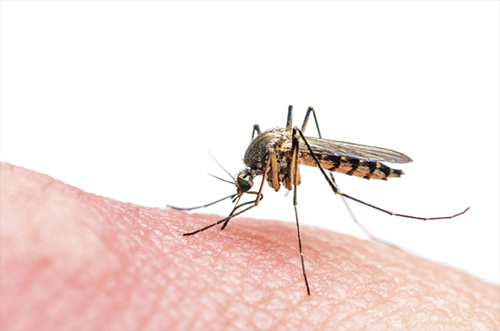What Is the Zika Virus and How Will It Affect Me If Pregnant?
 A story that has dominated the news of late is about the spread of the Zika Virus. This virus is a mosquito-transmitted infection that was first discovered in Uganda in the late 1940s and is common in Africa and Asia. The Zika Virus began spreading widely in the Western Hemisphere during the spring of 2015 when an outbreak occurred in Brazil. As a result of the rapid spread of the virus, the World Health Organization has declared the Zika Virus an international public emergency, due to the growing concern that the virus causes birth defects.
A story that has dominated the news of late is about the spread of the Zika Virus. This virus is a mosquito-transmitted infection that was first discovered in Uganda in the late 1940s and is common in Africa and Asia. The Zika Virus began spreading widely in the Western Hemisphere during the spring of 2015 when an outbreak occurred in Brazil. As a result of the rapid spread of the virus, the World Health Organization has declared the Zika Virus an international public emergency, due to the growing concern that the virus causes birth defects.
A story that has dominated the news of late is about the spread of the Zika Virus. This virus is a mosquito-transmitted infection that was first discovered in Uganda in the late 1940s and is common in Africa and Asia. The Zika Virus began spreading widely in the Western Hemisphere during the spring of 2015 when an outbreak occurred in Brazil. As a result of the rapid spread of the virus, the World Health Organization has declared the Zika Virus an international public emergency, due to the growing concern that the virus causes birth defects.
Until now, almost no one in the Americas had been infected with the Zika Virus. But since very few people have immune defenses against the virus, it is now spreading rapidly in this part of the world where millions of people living in tropical areas of the Americas may now have been infected. Experts tell us that the Zika Virus can be spread sexually but it is suspected now that it rarely happens as mosquitoes, not sex, transmit the vast majority of all Zika infections.
For most people, exposure to the Zika Virus causes no or very few symptoms and leads to no lasting harm. The primary concern is focused on women who become infected during pregnancy.
Symptoms of Zika Virus
The most common symptoms of Zika virus are fever, rash, joint aches & pains and conjunctivitis (red eyes). Typically, the illness is mild with symptoms lasting from a few days to a week. Most patients with Zika virus recover on their own and do not require hospitalization.
The Risk to Pregnant Women
By far, the most frightening thing about the Zika virus is the risk it poses to pregnant women. Recently, there were many reports coming out of Brazil of microcephaly and other poor pregnancy outcomes in babies born to mothers who were infected with the Zika Virus while pregnant. While more studies must be conducted to confirm this relationship, the Centers for Disease Control and Prevention (CDC) recommends special precautions for pregnant women and women trying to become pregnant.
What is Microcephaly?
Microcephaly is a congenital malformation wherein a baby's head and brain are unusually small. The majority of babies born with microcephaly experience a range of problems including developmental delays, intellectual deficits or hearing loss.
How Pregnant Women Can Protect Themselves
If you are pregnant or thinking about getting pregnant, you may be asking yourself:
"How will the Zika Virus affect me?"
The best way to protect yourself from the Zika Virus is to avoid traveling to areas where the virus is spreading (the most recent CDC Zika virus travel information can be found here).
If you are considering becoming pregnant, be sure to discuss your travel plans with your doctor. If you've traveled during your pregnancy to an area with an on-going Zika Virus transmission, contact your obstetrician for an evaluation.
If you cannot avoid being in an area with a known Zika outbreak, do the following to reduce your risk of being bitten by mosquitoes transmitting the Zika Virus:
- Use window & door screens
- Stay in air-conditioned areas where mosquitoes are less likely to be
- Remove sources of standing water where mosquitoes can breed
- Wear long sleeves, long pants and tuck your pants into your socks when outdoors
- Avoid using scented skincare products
- Use an insect repellent
- Wear light colored clothing as mosquitoes are more attracted to dark colors
Contact Your Obstetrician
The doctors at Doylestown Women's Health Center are diligently keeping abreast of all the latest information on the Zika Virus. Please feel free to contact us with any questions or concerns you may have about the Zika Virus and pregnancy management, as we are always happy to speak with you! Please give us a call at (215) 340-2229.
